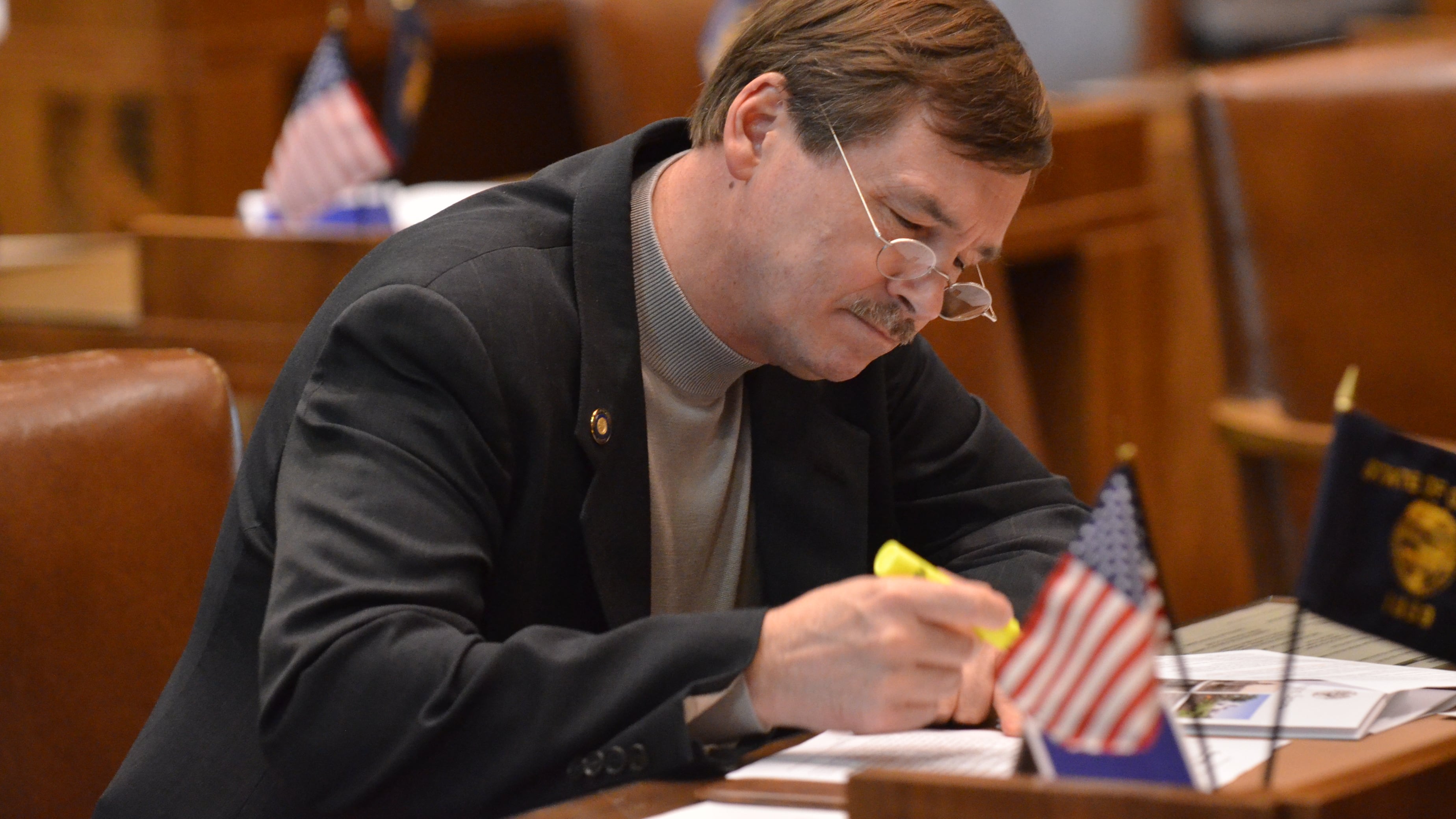State Sen. Brian Boquist (R-Dallas) might be among the least likely Oregonians to take guns out of the hands of citizens.
Boquist, 60, joined the Army in 1976 and served as a Special Forces officer until he retired in 2011. He's a gun enthusiast who holds a federal firearms license that allows him to act as a weapons dealer.
But in early 2016, Boquist's stepson, Seth Sprague, 31, fatally shot himself.
That happens a lot in Oregon, where the rate of suicide is 36 percent above the national average and has increased by one-third since 2000. Young veterans like Sprague are particularly vulnerable. About 1 in 5 Oregonians who kill themselves served in the military, and suicide is now the second-leading cause of death for Oregonians aged 10 to 34. Most of those deaths involve guns.
Following his stepson's death, Boquist teamed up with Salem's leading gun control advocate, Senate Majority Leader Ginny Burdick (D-Portland), to pass Senate Bill 941, which is what's called an "extreme risk protection order," or ERPO, law. The law allows a judge to order that guns be taken away from persons deemed an immediate threat to themselves or others. The bill squeaked through in the final hours of the 2017 session.
For Burdick, the law marked a big win after years of gun control advocacy. Second Amendment advocates, however, labeled Boquist a traitor. The Oregon Firearms Federation called him a "mercenary whose fortune is soaked in blood," called the bill "outrageous" and suggested he switch parties.
State figures show 74 ERPO petitions were filed in 2018, the year the law went into effect. Of that total, 62 orders were granted. Based on findings in other states, the law Boquist and Burdick passed probably saved a half-dozen lives.
In a week when the Oregon media are collectively reporting on the public health dangers of suicide, WW caught up with Boquist to see how he feels about the bill now. He declined to discuss his stepson, but he was blunt about the new law.
WW: How does a gun lover who spent decades in the Special Forces back a law that takes people's guns away?
I don't see it as a Second Amendment bill. I see this as a suicide prevention bill. When you've led men in combat and you've sent people to die and you know that people who come back are going to be messed up in the brain, you have to have some mechanism to help prevent them from suicide.
You spent decades in a command position. Why do you think the rate of suicide for veterans is so high?
You do not send people overseas to be peacekeepers, OK? That's not what they are trained to do. The military and the Department of Defense know a whole lot more about shellshock, post-traumatic stress disorder and psychological impacts than they want to be publicly transparent about. We know you can't take somebody and put them into certain situations. And we violated what we learned in World War I and World War II and Vietnam. Send people for too many tours and make those tours too long, you're messing with people's minds. It's that simple. And we did it intentionally, for budgetary reasons.
So the new law allows police to temporarily take guns away from people in crisis. Then what?
Peer support. What we have found in the veterans' community, you can have them visit the shrink all day long and it just doesn't work as well as people think it does. What you really need are peers who were in the same circumstances they were, who have worked their way through this. For any high-stress group, whether it's police officers or EMT professionals, working with their peers is really important.
It appears this law saved lives in 2018 and 2019. Would you agree with that?
My observation is yes. Of course, you'll get a small group of Second Amendment supporters who will say, "You don't know what might have happened." And you're certainly not going to get the guy who went through the deal [getting his guns taken away] to be honest. So now you're going to go to him and say, "Would you have killed yourself if you didn't do this?" The second he says yes, he's got a mental health determination against him and he's just lost his Second Amendment rights. Now he can't own guns. So this is sort of a Catch-22.
You took a lot of heat from gun rights advocates for this bill. Any regrets?
No. There are parts of the bill that could be improved, and I have committed to sit down and work to fix the pieces that people don't like. But no, absolutely no regrets. I don't have any problem going toe to toe with my critics. You've gotta remember I'm the one who said we should relegalize dueling here, OK?
This week, newsrooms all over Oregon are reporting on various aspects of suicide. That work is being collected at breakingthesilenceor.com.

